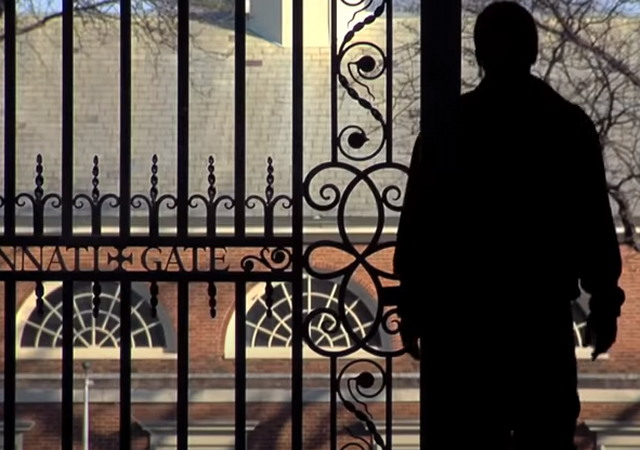Researchers Find Attending an Ivy League School Can Give You An Advantage In Life
“A new look at similar data suggests that for a select minority, Ivy League admission does yield a career jackpot.”

This may seem obvious at first glance, but there’s more to the story.
Josh Zumbrun writes at the Wall Street Journal:
How Ivy League Schools Tilt Your Odds in the Lottery of Life
Economists have long scoffed at parents’ obsession with getting their kids into an Ivy League college, thanks to research years ago showing it made no difference to a student’s future income.
But it turns out that research might have missed something important. A new look at similar data suggests that for a select minority, Ivy League admission does yield a career jackpot.
These findings tend to reinforce the suspicion that the nation’s top universities aren’t just a gateway to a good job but to the nation’s ruling elite. That is especially relevant in the wake of a Supreme Court ruling prohibiting the use of race as a factor in college admissions.
Until now, the received wisdom among economists was based on a pair of papers published in 2002 and 2014 showing that students who were accepted to elite schools, but didn’t actually attend them, ended up having the same average incomes as students who attended.
Authors Stacy Berg Dale, now a principal researcher at data-science company Mathematica, and the late Alan Krueger of Princeton University based their findings on admissions data from a mix of 34 private and public universities, liberal-arts colleges and historically black institutions for the year 1976. They sought to track down nearly every student from this cohort 20 years later. A follow-up study followed students from the 1989 school year.
Dale, then a researcher for the Mellon Foundation, realized the data could settle a debate lingering since the 1960s. Did graduates of top universities earn more because of something the college did, or because elite schools simply attracted people with the characteristics—diligence, smarts, initiative—to earn more?
 DONATE
DONATE
Donations tax deductible
to the full extent allowed by law.









Comments
Kinda obvious.
Also kinda obvious that it has nothing to do with how smart, wise, or well-educated you are.
And, not just any grad. Grads from the “right”
drinking clubfraternity, members of the same restricted country clubs, and “good” families (old money, Protestant).It has nothing to do with the quality of education and everything to do with the people that you meet.
L these black supremacists on TV and in politics are Harvard and other Ivy League schools graduates. Stacey Abraham’s? She’s not “Protestant”. She’s a Harvard grad.
The lede is buried in the rest of the article if you go read it.
The headline is clickbait due to a statistically significant difference, but the effect size is small. These two paragraphs trying to sensationalize a small effect size should sum it up for anyone who has read data reports.
“Chetty and his authors use a slightly different approach. They classify everyone’s income into percentiles—80th, 81st, etc. This still tends to dilute the Bezos effect because he is grouped in with the entire top 1%, most of whom are much less wealthy. But it captures variation within the top 20% better than the Dale-Krueger study, which treated everyone above $200,000 as earning $200,000.
The result: Chetty and his co-authors find top students who didn’t attend an Ivy-like school had average incomes in the 79th percentile; those who did attend earned only marginally more: they were in the 81st.
Where an Ivy-like school really made an impact was in the odds of an exceptional, Bezos-like outcome. Among top students, 19% who attend the top schools make it to the richest 1% of the income distribution, versus 12% who didn’t attend. Attendance at an Ivy-like institution had an even bigger impact on attendance in graduate school or working at a prestigious firm.”
I’d point out that grad school and “prestigious firms” are no longer that big of a deal. Both tend to chew people up and spit them out at relatively high rates compared to professions with a better work-life balance.